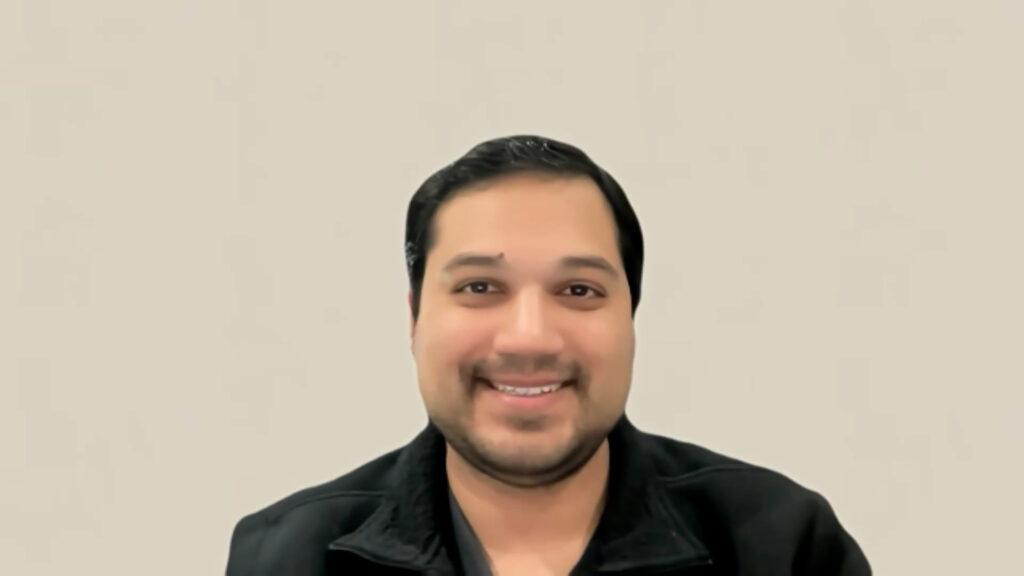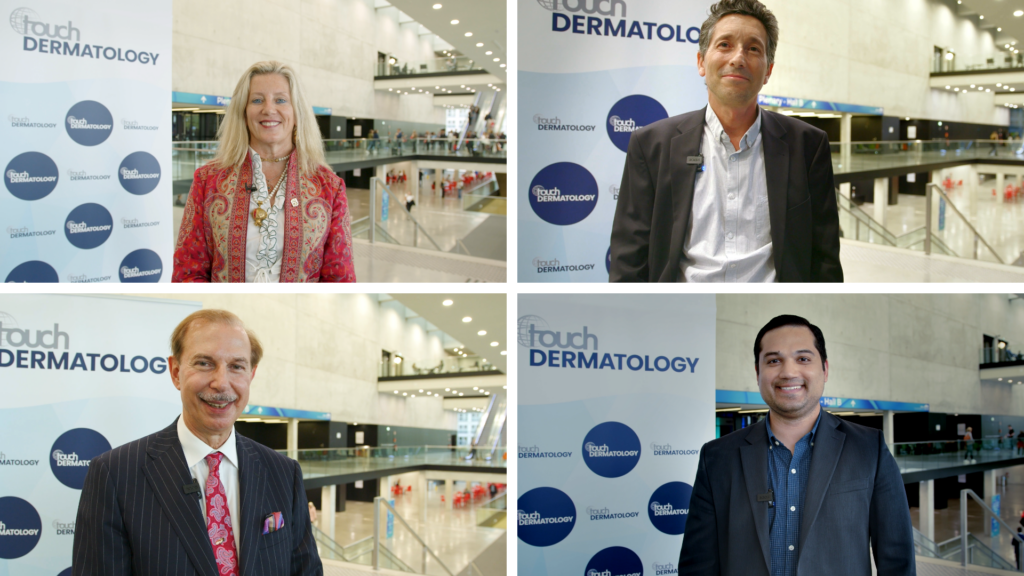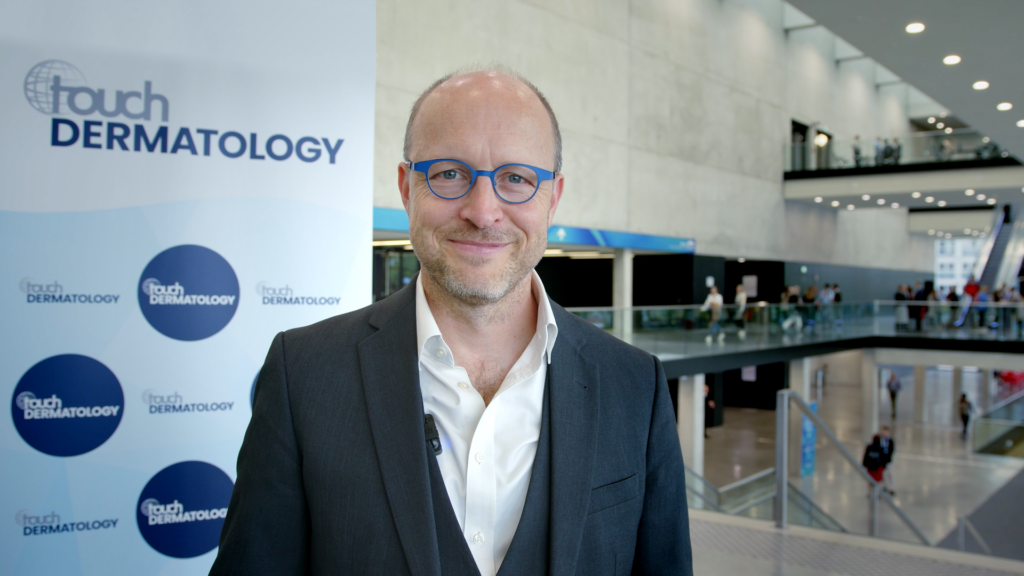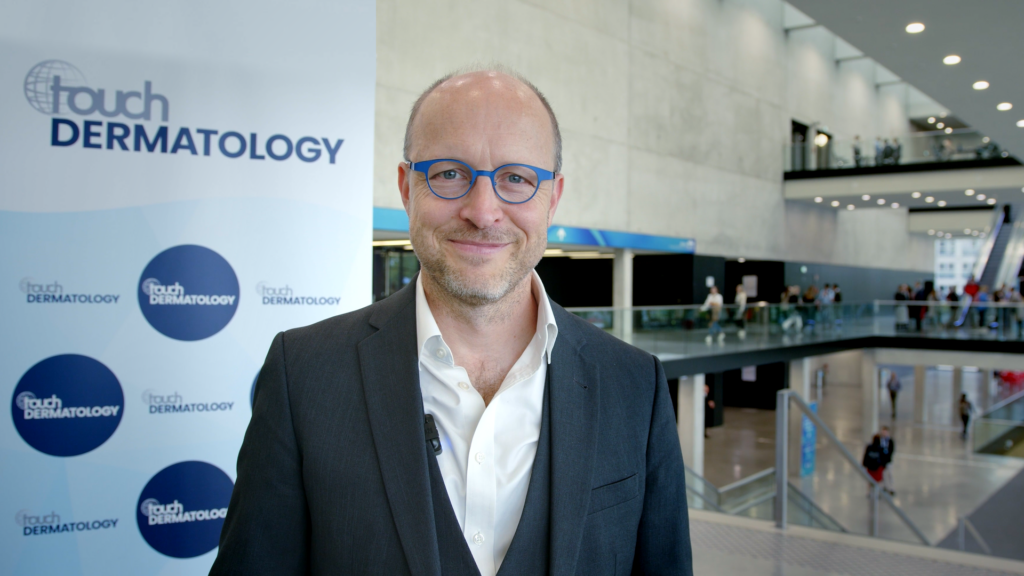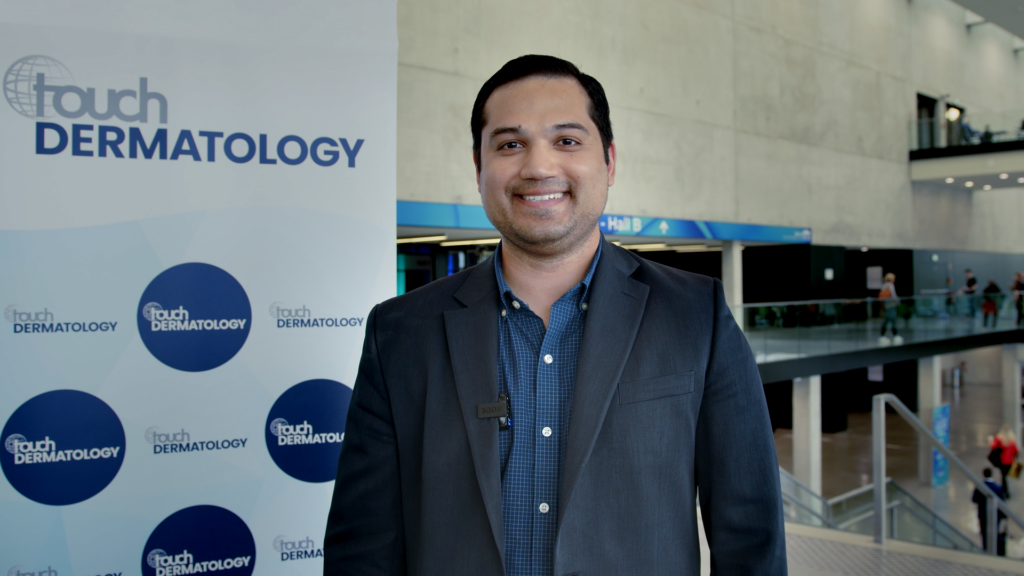TouchDERMATOLOGY coverage from AAD 2023:
JADE-EXTEND (NCT03422822) is a phase 3 long-term extension study investigating the efficacy and safety of abrocitinib in atopic dermatitis. In this touchIMMUNOLOGY interview, we caught up with Dr. Melinda Gooderham (SKiN Centre for Dermatology, Ontario, Canada) around her interim analysis of JADE-EXTEND, looking at efficacy by baseline disease severity.
The abstract ‘Influence of Baseline Disease Severity Defined by Investigator’s Global Assessment on Abrocitinib Efficacy for up to 96 Weeks in Patients With Moderate-to-Severe Atopic Dermatitis: Interim Analysis of JADE EXTEND, a Long-Term Extension Study’ (Poster ID: 44180) was presented at AAD 2023, 17-21 March, 2023.
This content has been developed independently by Touch Medical Media for touchDERMATOLOGY & touchIMMUNOLOGY. It is not affiliated with, or endorsed by, the American Academy of Dermatology (AAD). Unapproved products or unapproved uses of approved products may be discussed by the faculty; these situations may reflect the approval status in one or more jurisdictions. No endorsement of unapproved products or unapproved uses is either made or implied by mention of these products or uses by Touch Medical Media or any sponsor. Views expressed are the speaker’s own and do not necessarily reflect the views of Touch Medical Media.
Questions
- What is the mechanism of action of abrocitinib? (0:14)
- What were the aims and design of your interim analysis of the JADE EXTEND study? (0:27)
- What were the findings of this analysis? (1:10)
- What impact will these findings have on clinical practice? (2:17)
Disclosures: Melinda Gooderham discloses consulting for: AbbVie, Akros, AMGEN, Arcutis, Aslan, Bausch, Boehringer Ingelheim, Celgene, Eli Lilly, Janssen, Kyowa, Novartis, Regeneron, Sanofi, Sun Pharma, UCB and Ventyx; receiving grant/research support from: AbbVie, Akros, AMGEN, AnaptysBio, Arcutis, Aristea, Aslan, Bausch, Boehringer Ingelheim, BMS, Celgene, Coherus, Dermavant, Dermira, Eli Lilly, Galderma, GlaxoSmithKline, Incyte, Janssen, Kyowa, LEO, MedImmune, Meiji, Merck, MoonLake, Nimbus, Novartis, Pfizer, Regeneron, Sanofi, Sun Pharma, UCB and Ventyx; serving on advisory boards for: AbbVie, AMGEN, Arcutis, Asana, Aslan, Bausch, Boehringer Ingelheim, Celgene, Dermavant, Eli Lilly, Galderma, Janssen, LEO, Novartis, Pfizer, Regeneron, Sanofi, Sun Pharma, UCB and Ventyx; receiving honoraria/honorarium from: AbbVie, Akros, AMGEN, AnaptysBio, Arcutis, Aristea, Asana, Aslan, Bausch, Boehringer Ingelheim, BMS. Celgene, Coherus, Dermavant, Dermira, Eli Lilly, Galderma, GlaxoSmithKline, Incyte, Janssen, Kyowa, LEO, MedImmune, Meiji, Merck, MoonLake, Nimbus, Novartis, Pfizer, Regeneron, Sanofi, Sun Pharma, UCB and Ventyx; and participating in speaker’s bureaus for: AbbVie, AMGEN, Arcutis, Bausch, Boehringer Ingelheim, Celgene, Eli Lilly, Galderma, Janssen, LEO, Novartis, Pfizer, Regeneron, Sanofi, Sun Pharma, UCB and Ventyx.
Support: Interview and filming supported by Touch Medical Media Ltd. Interview conducted by Victoria Jones.
Filmed in coverage of the 2023 AAD Annual Meeting.
Click here for more content on dermatological conditions.
Transcript
What is the mechanism of action of abrocitinib? (0:14)
Abrocitinib is a JAK1 selective inhibitor that is used for moderate to severe atopic dermatitis in the JADE program.
What were the aims and design of your interim analysis of the JADE EXTEND study? (0:27)
So, the JADE-EXTEND you know, as you mentioned, this is an interim analysis important to remember of both adolescent and adult patients. And so, the JADE trials MONO-1, MONO-2, COMPARE, TEEN and DARE are then rolled over into the JADE-EXTEND study, which is a long term study. So this analysis was that patients were subdivided in a post-hoc way by their baseline disease severity, as they were assessed by an IGA score at their baseline. So, it was either a moderate IGA score of 3 or an IGA score of 4 severe.
What were the findings of this analysis? (1:10)
So really, the majority of patients did well, whether they had moderate or severe disease. You know, we looked at obviously the two doses of abrocitinib, there’s the 100 milligrams and the 200 milligrams and the 200 performed better than the 100, although the 100 still does extremely well. And really, the only place where we saw a bit of a difference is that in IgA of 0 or one, which is clear, almost clear was slightly less in the severe patients compared to the moderate patients. But from EASI 75 scores and the Peak Pruritis NRS score of 4 points or greater/ 4 point improvement or greater was the same in the moderate and severe patients. So really the only place we saw the difference was in an IGA of clear, almost clear, which was slightly lower for the severe patients compared to the moderate patients.
What impact will these findings have on clinical practice? (2:17)
So again, I think, you know, similar to the last poster, if you have a patient who’s more severe at baseline, you may think a little earlier about optimization of treatment. They may require additional topical therapies along with the abrocitinib to be able to achieve that clear, almost clear status. So that IGA 4 patient may require combination therapy. That’s what I would take away from this.
Subtitles and transcript are autogenerated.


